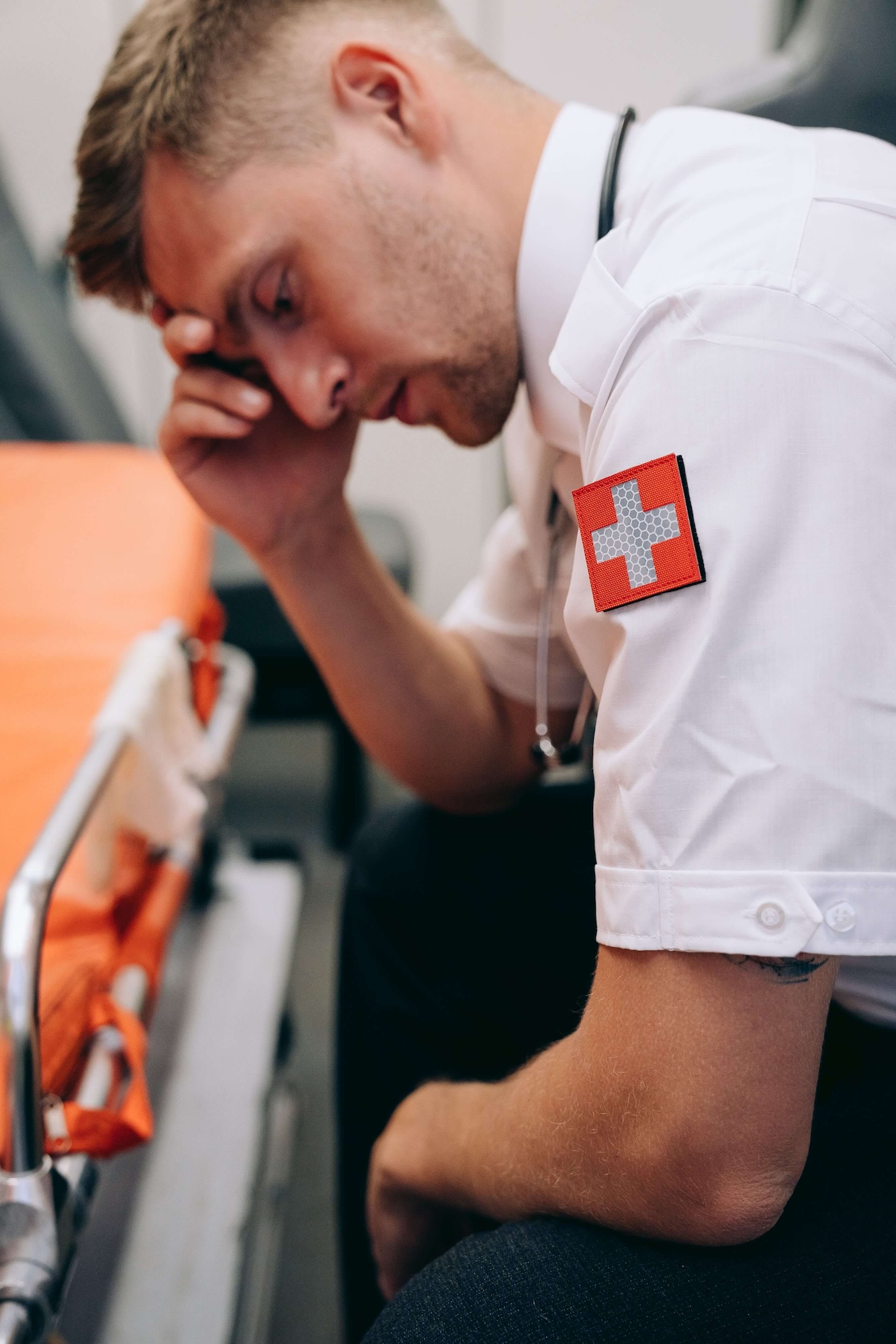Stress
“Stress is your body’s reaction to a challenge or demand. In short bursts, stress can be positive, such as when it helps you avoid danger or meet a deadline. But when stress lasts for a long time, it may harm your health.” (Stress and Your Health: MedlinePlus Medical Encyclopedia, n.d.)
Paramedics, and other emergency service, workers often experience traumatic and life-threating situations as part their workday. In an Australian report by Kyron et al. (2022) it was found that 83% of the employees had been deeply affected by a workplace stressful event. There are higher rates of depression and posttraumatic stress disorder (PTSD) for these workforces (Berger et al., 2011).
Being exposed to multiple critical events over an extended period can have a cumulative effect that is linked to poorer mental health (Kyron et al., 2022). Aside from stressful events at work, employees also experience external stressors from their environment, family, and workplace. Lack of support, conflicts and financial burdens can also contribute to a base line of chronic stress.

Photo by Mikhail Nilov
Above and beyond the workplace’s obligation, as an individual there are evidenced based tools to help manage stress (“11 Healthy Ways to Handle Life’s Stressors,” 2023).
Seek professional help like counselling and psychiatry to re-frame thinking.
Establish good sleeping routines.
Meditate.
Physical activity and muscle relaxation.
Eat nutritionally.
Maintain activities you enjoy.
Be social.
Get out into nature, away from routine and environment.
Try eliminating stressors. Spread the burden with family, prioritise, set boundaries.

Over the past 48 years (yeah, old man talking) I have experienced traumatic events in both personal and professional situations, and they are interwoven with general life stressors.
For me, I found that talking therapy works great. Using a psychiatrist to breakdown situations to manageable and explainable items helps me to reduce mental burden. I still do my “head tune-up” with my psychiatrist every six months and if necessary, will use a more specialised support service to a particular event. Recently I attended a very different cardiac arrest, so I used 1800 MANERS.
I am pro-active with my mental health so will continue to seek this type of support when working as a paramedic. I have an ever-growing toolbox for my mental well-being as a result.